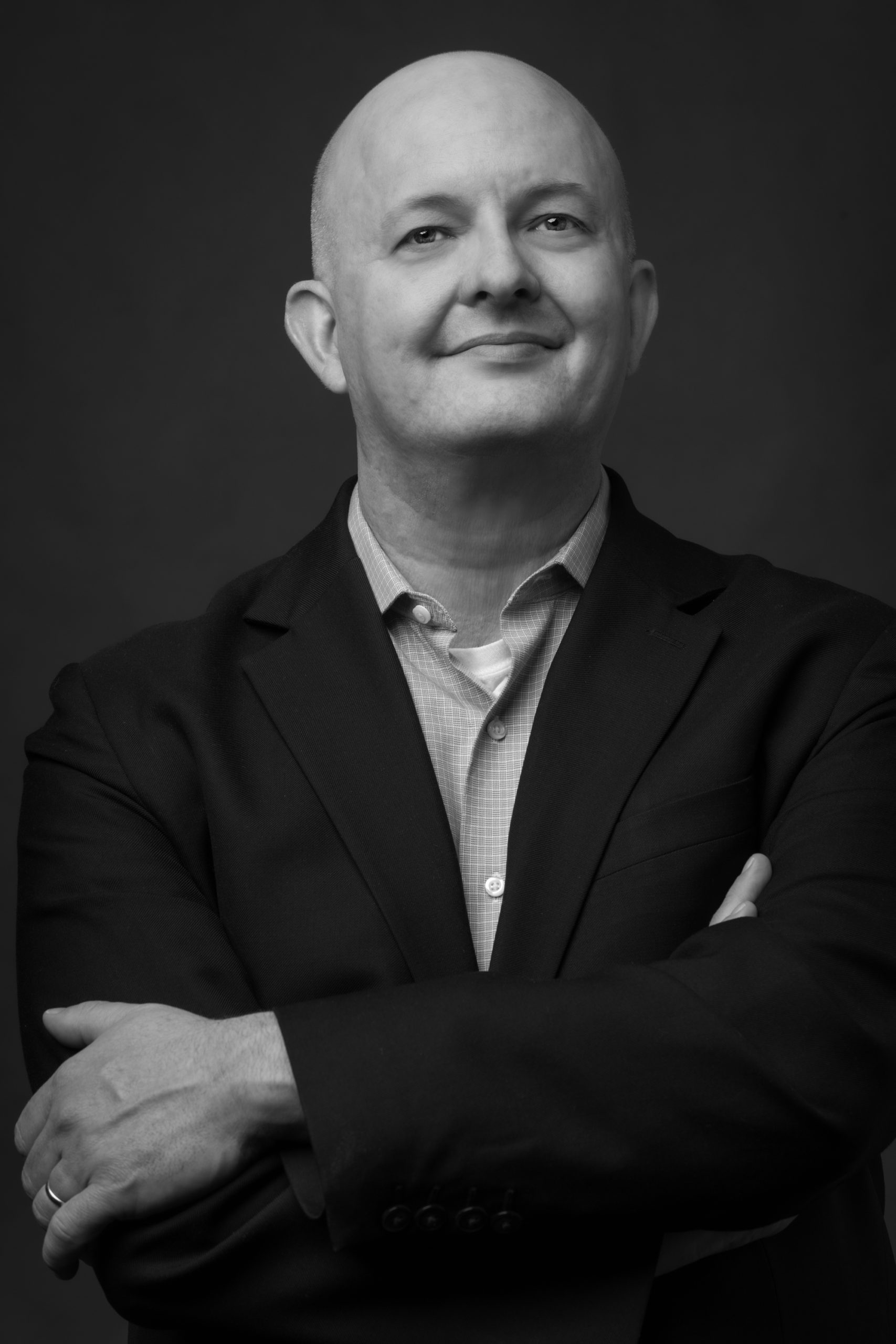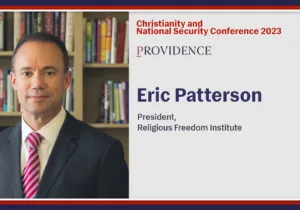I teach an introductory course in political philosophy nearly every semester, and toward the end of the term I have my students read an excerpt from Michel Foucault’s Discipline and Punish. Foucault’s work traces (and sometimes fudges) the history of punishment in the West as a means of laying bare what he sees as the true nature of political rule and especially contemporary liberal orders.
The excerpt’s centerpiece is Foucault’s discussion of the Panopticon, Jeremy Bentham’s design for a penitentiary in which prisoners’ cells are arranged around a central tower where the guards, shielded by mirrored glass, can see everything a prisoner does at all times. But precisely because the glass is mirrored, the prisoners cannot know when they are (or are not) being observed—and thus they find themselves “disciplined” into “proper” behavior via the mere threat of surveillance. Foucault’s point is to suggest that modern liberal societies, notwithstanding their claims about the freedom and equality of all, are shot through with disciplinary practices of power that mold and shape us in ways we typically do not recognize and that are deeply oppressive.
What is surprising is how many of my students—smart, earnest Christians whose lives have been marked by a degree of ease and success practically unthinkable to the vast majority of their fellow human beings—find this to be a plausible, maybe even persuasive picture of the social and political order they inhabit. Foucault’s dyspeptic critique appeals to them, I think, not just because they are late adolescents marked by vivid delusions of how “The Man” has got them down (though that helps). Rather, many find it attractive because they are instinctively suspicious of institutions, believing the power that animates those institutions to be something dark and malevolent, rooted in sinfulness and intrinsically tied to self-glorification and oppression. For all too many of my students, and for all too many Christians in latter-day America, power is not a blessing or gift but a force exercised over others, usually to their detriment.
Andy Crouch means to change that, arguing in Playing God: Redeeming the Gift of Power (2013) that while exercises of power are of course always tied up with our human sinfulness, power itself is not simply a problem to be avoided or contained or lamented. Rather, power is a divine gift meant to enable the possibility of true human flourishing, and when we refuse to exercise power the cost is often that possibility. To put it altogether too simply, though I hope not inaccurately, Crouch means to persuade us that loving one’s neighbor usually involves the exercise of power and, thereby, that the wholesale refusal to do so is to disobey God. Crouch’s book is a masterful and sorely needed correction regarding the nature and possibilities of power, and it is one that all of us with power—that is to say, nearly all of us—should read and think on. But it is not enough, and Crouch’s argument stops short precisely at that place where we 21st-century American Christians find ourselves most perplexed with power, namely politics.
The funny thing about my students’ fascination with Foucault is how it parallels a similar fascination with the work of Anabaptist theologians, particularly John Howard Yoder and Stanley Hauerwas. Yoder, especially, labored to put nonviolence at the heart of the Christian life, and at first glance it might seem strange that students could embrace both Yoder the committed Christian pacifist and Foucault the atheist apostle of power. But the two are not as much at odds as they might first appear, at least with respect to their understanding of what constitutes “ordinary” political life. What they share is a conviction that ordinary politics is not driven by moral commitments or reason or nature, but instead by the willful desire to dominate others. Not every particular instance of political life is overseen by some cackling, knuckle-cracking villain looking to conquer the world (or at least his corner of it). But for Foucault and Yoder both, political orders are always and everywhere ultimately the product of the willful exercise of power, and always and everywhere tied up with coercion and violence. Simply put, my students find both Yoder and Foucault attractive because both have a great deal in common regarding how they view political power.
Nevertheless, while they might share a sense of what politics, generally speaking, consists in, Yoder and Foucault diverge dramatically when it comes to how we should respond. Foucault rather hopelessly seemed to think the best one could do is to try and break up the various accretions of power—institutions, in other words—that made it difficult for individuals to live as they willed. This belief is, for instance, one reason he expressed early support for the 1979 Iranian Revolution even after it became clear that it had taken a hard Islamic line: it stood as a broad repudiation of liberal modernity. Yoder took quite an alternative tack, calling on his fellow Christians to commit themselves to living out the virtues of the Sermon on the Mount as part of the actually existing Church. That is, given the practically demonic nature of politics, Christians should follow Jesus in refusing to play politics’ deeply violent game and instead embody an alternative polis, the Church, one animated by commitments to peaceableness, forgiveness, love, and the like.
Crouch’s argument encourages Christians who, like my students, find Yoder attractive to reconsider their (often intuitive) Foucauldian sense of what power (and politics) might mean, even outside the Church proper. Crouch’s strategy is to remind us that inasmuch as the exercise of power in our fallen world is always tied up with our sinfulness, it was “not always so.” Rather, we were originally created imago Dei, in the image of God, with the privilege of exercising power on behalf of the One who created us to the end of promoting the flourishing of all to His glory. And in spite of our sinfulness, we can still aspire to that original mandate, using our acquired (or inherited) skills and resources for others’ good. The world is not, or at least not always, simply a zero-sum game.
I suspect that most of Crouch’s readers will find much of what he says congenial and even persuasive. We all can think of the generous teacher or boss or neighbor whose actions, or exercises of power, did more to promote our good than we had any right to expect. Though we may sometimes be tempted toward a deep cynicism regarding those around us, especially those in authority over us, very few of us think that everyone is really only out for themselves. That sort of cynicism, like Hume’s moral skepticism, can be thought but not really lived.
That said, this congenial reception will likely wane when it comes to the chapter on politics, and I fear that Crouch does not do enough to change reader’s minds about political power precisely because he himself evinces a deep ambivalence when it comes to one of the things that distinguishes political authorities, namely their employment of lethal force; that is, their lethal power.
Crouch argues that the misuse of power always involves injustice and idolatry paired up together. If some person or organization exercises power wrongly, they are “playing God,” making themselves (or maybe some other thing) something to be placed above the true God—and in so doing they commit (and induce others to commit) an injustice. And treating others unjustly turns out to mean simply committing ourselves to something other than God. Fraudulent financial systems make a god of money and treat others and their resources unjustly. Committing adultery breaks faith with one’s spouse and makes an idol of sexual desire (or whatever might motivate it). Exercising power properly means refusing the twin temptations of idolatry and injustice. So what does it look like to exercise power properly in the realm of politics?
Crouch takes up this question explicitly in Chapter 7, though of course politics has never really been absent. One of his early examples of how power can be used well and badly, for instance, has to do with modern-day slavery, where such practices can only thrive with the cooperation or support of political authorities. He attempts here to do at least two related things: (1) refute the idea that politics is simply about violence (or the threat thereof); and (2) draw a distinction between what he calls “force” and “violence” that in turn marks the distinction between the proper and improper uses of political power. The first seems almost obviously true, since though it may be the case that politics always has some relation to force, to reduce politics to violence simpliciter is to mis-describe all sorts of political phenomena. Legislative deliberation and electoral contests are not, in the final analysis, simply emanations of violent structures. It is the second task, of course, where the real controversy lies and where I think Crouch pulls up short, with perhaps significant consequences.
Every political order must use, or threaten the use, of force— or, more broadly, coercion— but obviously political authorities sometimes use force in malign or excessive ways, tipping over into Crouch’s “violence.” The distinction between the two follows on from the basic prior argument, namely that power has as its proper end the flourishing of all. So when a state tortures or murders or permits the destruction of the unborn, it acts (or permits others to act) in ways that constitute an unjust exercise of power precisely in how those acts undermine human well-being.
This all makes a great deal of sense, and we would be much better off if our various political authorities genuinely thought of their power in this way. But there can also be detected in Crouch, I think, an ambivalence regarding force and coercion that, if left untended, could in fact unravel his argument about power as a whole. The trouble is that while Crouch rightly disagrees with Yoder’s conflation of power and force (or violence), he leaves us unsure as how we ought then to regard the sort of lethal force that he acknowledges every political order must have at its disposal in order for it to do its job. How should we think about the fact that every state kills (and, more broadly, threatens to kill) as part of its ordinary operation? We may well think that police forces should not look quite like paramilitary organizations and yet still think both that they must be at least basically armed, and that they are justified in employing lethal violence, if only in the last resort. If an unjust exercise of power is recognized by the simple fact that it undermines human well-being, isn’t the expression of lethal force by the police precisely such an improper use of force?
Crouch really doesn’t give us a clear answer to this question. He notes that most Christians have held to some version of the Just War Tradition without endorsing it himself. Instead, he merely accepts the idea that “no society can survive without coercion” while also seeming to suppose that the sort of “lethal or injurious force” that political orders utilize is not “ever a good thing in itself”(p 142). What seems to be at work here—and I employ “seems” because I don’t know that Crouch has things clear even in his own mind—is that political orders are justified in using deadly force in the course of their ordinary operations but that such force is a kind of evil. We cannot escape that the state bears the sword, but neither can we celebrate it.
In one sense, this is obviously correct. The frisson we feel watching a movie as an especially disreputable villain meets his violent end should not translate into the real political world, even when we think such an end necessary and just. Crowds celebrating the killing of Osama bin Laden outside the White House should make us feel uncomfortable—we would be better off giving those who sent him into the hereafter a sincere (if muted) appreciation, acknowledging the rightness of such acts without treating it like the latest celebrity athletic triumph. Killing a human being is a serious and terrible thing, and Crouch is right to suggest we treat it with the sobriety and care it deserves.
But in another sense, it is just as obviously not correct. To hold simultaneously that political authorities may employ lethal force as part of their responsibilities and that such lethal force is a kind of evil looks to me to be morally incoherent at best. If some act truly is evil, we have no business doing it, even if we think the consequences would be tremendously happy—just think here of Paul in Romans 3:8 expressly criticizing just this sort of moral consequentialism (i.e. the idea that we might “do evil that good may result.”). We are often tempted to say that compromising on our moral obligations is sometimes “necessary,” but that is usually just a dodge, an attempt to obscure the moral contradictions we entangle ourselves in all the time. Indeed, as best I can see it, Crouch’s ambivalence here emerges out of the very real difficulty in seeing how the legitimate (lethal) exercise of political power fits into the broader claim about how power is for our flourishing. It is one thing to say that the business executive can act in such a way that all flourish, but when the state kills someone, even legitimately, such commendations ring more than a bit hollow.
The trouble with this, though, is that if the exercise of power is indeed morally problematic at the very point—Crouch’s “violence”—that Yoder and the Anabaptists find so troubling, why should we not think that every exercise of power is likewise problematic, even if the stakes are not quite so stark?
I noted earlier that one of the admirable parts of Crouch’s discussion of power is the way he disabuses the reader of the idea that power is always a zero-sum game. It obviously isn’t, as his numerous examples show. But sometimes it is, and we do ourselves no favor in pretending otherwise. Consider the business executive, who has the responsibility of exercising her power in such a way that it conduces to business’s, her own, and others’ flourishing. It seems likely, near inevitable, that she will, on occasion, have to fire employees for wrongdoing or incompetence. While such an event could lead to good in the fired employee’s life, there is certainly no guarantee, and it seems quite possible that such an event could be thought to ruin that person’s life, even if it was the proper thing to do. But insofar as the business owner is exercising her power appropriately, we should not, we cannot, hold her culpable. She has done no wrong. It is just not the case that we can always (or even often) exercise our power in such a way that everyone flourishes. That is, there is always (or at least there is often) a hard, or difficult, side to power, even power directed toward its proper end, flourishing.
My point here is not that power is bad or that the Anabaptists are correct. Far from it. Instead, I mean to suggest that Crouch’s understandable ambivalence when faced with the exercise of power that has such drastic consequences—the destruction of a human being—leaves open the door to similarly structured ambivalences everywhere power is exercised. We live in a world of scarcity, both moral and material, and it is unreasonable to presume that we can ignore either sort of scarcity while exercising power of any sort. The solution, insofar as it is a solution, is to face those scarcities clearly and recognize that some (though not all) of our choices will have aspects to them that are tragic, even terrible, but that we still can and should exercise power in a way that does not commit us to acting immorally.
This is not, I hardly need to say, a view that should give us much comfort, for it suggests that we may be called upon to make terrible choices when we inhabit positions of power and authority, choices that are necessary to preserve the conditions for human flourishing even when they impose real, tangible harms. My students, I should note, tend not to like this view. They are much more comfortable with the idea either that power is just what Foucault suggests it is or that there is always a positive-sum solution to be found if we just look hard enough. It would be nice to tell them the latter, except that in so doing I likely would leave them vulnerable to embracing the former.
Power is indeed a divine gift, bestowed upon human persons for the cultivation of creation, all to God’s glory. But as finite creatures marred by our own cupidity, we should take seriously the ambivalences inherent in all our exercises of power, not just our political ones.
Bryan T. McGraw is an Associate Professor of Politics at Wheaton College in Wheaton, IL, where he teaches political theory and works on perfecting his pulled pork BBQ.
Photo Credit: French police during a riot and demonstration at the Bastille on May 6, 2007. Photograph by Mikael Marguerie via Wikimedia Commons.






